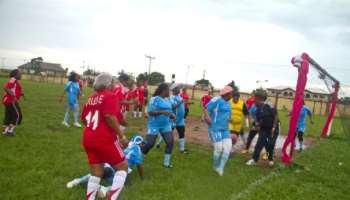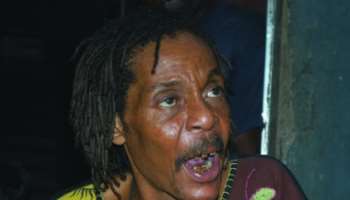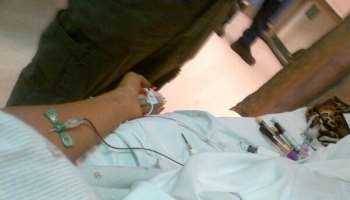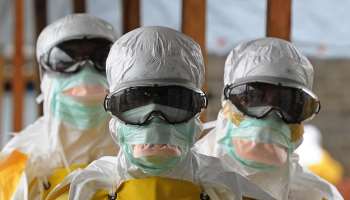Malnutrition: Nigerians Need Change, Northeast Needs Nutritious Food
Following the displacement of people from their homes during the Boko Haram crisis, a latest data has shown that the rate of malnutrition among children in Born State has risen to what is deemed critical.
Levels of Global Acute Malnutrition recorded in July and August were well over the 15 percent threshold, and, in some cases, higher than 50 percent. This simply means that more than half the children surveyed in the state suffered from moderate or severe acute malnutrition.
See Also: 134 Starved Children May Die Daily in Borno – UNICEF Warns
This was revealed in a special report on the “possibly deteriorating” situation in the states of Borno and Yobe, by FEWS NET, a network set up by USAID to provide early warning on famine and food insecurity, said surveys and screenings indicated GAM rates “ranging from 20 to nearly 60 percent”.
Excerpt from the report said:
“This level of acute malnutrition reflects an 'Extreme Critical' situation… and is associated with a significantly increased risk of child mortality. Conditions may be even worse in areas that remain inaccessible.”
UNICEF had earlier drawn attention to the unfolding crisis in northeastern Nigeria in July. According to the organization, 244,000 children faced severe malnourishment in Borno State alone and warning that an estimated 49,000 – one in five – would die if they didn't receive treatment.
FEWS NET also directed a particular attention to places like Banki Town and Bama in Borno State, where the fear of Boko Haram violence continues to limit movement and prevent humanitarian access.
See Also: This Is How The “Change” Will Come – President Buhari
Most displaced people still regard the towns as neither fully safe nor ready for reoccupation, and they fear going back to villages even more likely to be raided. Those who have the courage to go back to their homes are afraid because there is no guarantee of safety as they seek to rebuild their homes or start farming again.
Hence they are “forced to start farming along the road and send their cows into the farming areas deep in [Boko Haram territory],” said Ibrahim Abubaka who had left his community Gwoza with his family to escape the insurgent.
Latest News
-
 "Successful Singers Don't Beg People To Download
"Successful Singers Don't Beg People To Download -
 "When I Think Of Tinubu, Hardship Comes To My Mind
"When I Think Of Tinubu, Hardship Comes To My Mind -
 "I Miss My Mama" - Mr Eazi Remembers Late Mother,
"I Miss My Mama" - Mr Eazi Remembers Late Mother, -
 "I Wish I Hadn't Relocated From Nigeria To The US
"I Wish I Hadn't Relocated From Nigeria To The US -
 "I'm Almost Regretting My Decision To Abandon Mak
"I'm Almost Regretting My Decision To Abandon Mak -
 Content Creator Gilmore Celebrates 1 Million Insta
Content Creator Gilmore Celebrates 1 Million Insta -
 "There Will Be Proof That I'm The Greatest Of My
"There Will Be Proof That I'm The Greatest Of My -
 Actress Biodun Okeowo Celebrates Lege Miami On His
Actress Biodun Okeowo Celebrates Lege Miami On His -
 Davido's 'With You' Ft Omah Lay Official Video Hi
Davido's 'With You' Ft Omah Lay Official Video Hi -
 "I'm Ready For My Next Husband" - Ka3na Reveals
"I'm Ready For My Next Husband" - Ka3na Reveals













